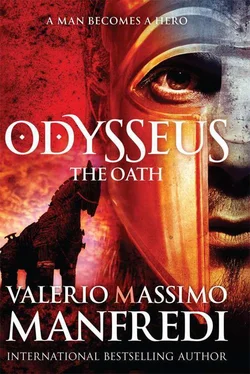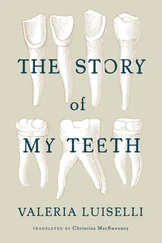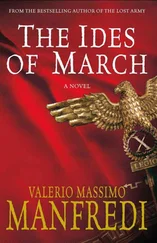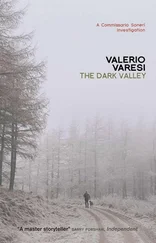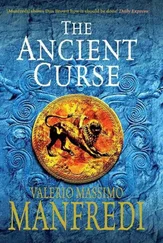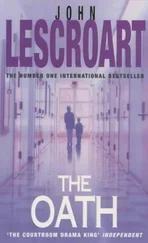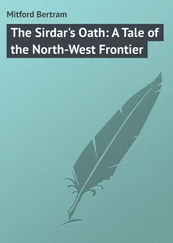Valerio Mafredi - The Oath
Здесь есть возможность читать онлайн «Valerio Mafredi - The Oath» весь текст электронной книги совершенно бесплатно (целиком полную версию без сокращений). В некоторых случаях можно слушать аудио, скачать через торрент в формате fb2 и присутствует краткое содержание. Год выпуска: 2013, ISBN: 2013, Издательство: Macmillan, Жанр: Исторические приключения, на английском языке. Описание произведения, (предисловие) а так же отзывы посетителей доступны на портале библиотеки ЛибКат.
- Название:The Oath
- Автор:
- Издательство:Macmillan
- Жанр:
- Год:2013
- ISBN:9780230769335
- Рейтинг книги:3 / 5. Голосов: 1
-
Избранное:Добавить в избранное
- Отзывы:
-
Ваша оценка:
- 60
- 1
- 2
- 3
- 4
- 5
The Oath: краткое содержание, описание и аннотация
Предлагаем к чтению аннотацию, описание, краткое содержание или предисловие (зависит от того, что написал сам автор книги «The Oath»). Если вы не нашли необходимую информацию о книге — напишите в комментариях, мы постараемся отыскать её.
The Oath — читать онлайн бесплатно полную книгу (весь текст) целиком
Ниже представлен текст книги, разбитый по страницам. Система сохранения места последней прочитанной страницы, позволяет с удобством читать онлайн бесплатно книгу «The Oath», без необходимости каждый раз заново искать на чём Вы остановились. Поставьте закладку, и сможете в любой момент перейти на страницу, на которой закончили чтение.
Интервал:
Закладка:
‘Ideus, the king’s herald.’
‘Priam? He came here?’
‘Yes. Someone more powerful than we are guided us through the darkness. Priam knelt at Achilles’ feet and kissed the hand of the man who killed his son. He begged him. An old man humbled by his grief. He touched Achilles’ heart. Hector will be honoured by tears. . those of his mother, of his grief-stricken wife, of his comrades, of the entire city. This is true glory, wanax Odysseus: the tears of those we love when we leave this world. Who will cry for Achilles?’
‘Who? His father, so far away. And Priam will cry for him, because he took pity on his suffering. And because when war is rampant, a single man’s sorrow is every man’s sorrow; every father is the father of every son, every son is the son of every father.’
I turned my back to him and walked back to my own ship.
In the days that followed nothing happened. It seemed that the two armies, and the two peoples, had been devastated by grief and prostrated by exhaustion. Now that Patroclus was dead, and Hector dead, Achilles had nothing to dedicate his life to, if not combat for combat’s sake: the pursuit of a glorious death. And when the war flared up again, he began to challenge and strike out at the two Trojan warriors who had taken Hector’s place after his death: Deiphobus and Aeneas. We all imagined that fate would now be on our side. After all, Achilles was back in the fight, while they had lost their mightiest warrior. But the tide of war didn’t turn as we expected: the Trojans became more cautious and they lined up all their best warriors against our champion. More than once, Achilles succeeded in overwhelming them and routing them, and they were once again forced to seek shelter behind the walls of their city, but those walls were unbreachable.
Then one day at the beginning of the autumn, it finally seemed that the Trojans had been put to flight. Achilles turned to his men and was urging them to follow him and block the doors of the gate before they could be closed, when a poisoned arrow soared through the air and pierced Achilles in the leg, near his heel. He stopped and tried to pull out the arrow in his fury to continue the assault, but his vehemence suddenly faltered and he collapsed to the ground before the cursed, unconquerable Skaian Gate.
Paris’ hoot of triumph, as he raised his bow in his right hand so all could see, made us realize that it was he who claimed victory over the greatest warrior who had ever set foot upon the earth. What a cruel twist of fate! But his exultation was short-lived. I had been at the rear lines, close to the wild fig tree, because every now and then my wound would make itself felt and I’d have to break off fighting to catch my breath. But from where I was I could see Paris distinctly. I nocked an arrow to my bowstring. I could not shoot directly because there were too many obstacles between us so I aimed slightly upwards; a curved shot, very difficult if not wholly impossible. But my goddess had to heed my prayer this time. ‘Listen,’ I said, ‘no one will ever know where this arrow came from. You can dedicate the victory to Hercules, because it is he who I am thinking of in this moment.’ For an instant Damastes took shape next to me and I could hear his voice in my heart: ‘Keep in mind the wind!’ The heavy, well-balanced arrow followed its arched path, soaring up and then gaining force and speed as it began to descend. It struck the target fully, plunging into Paris’ throat. He died instantly. All those around him were astonished, as if the fatal shaft had been cast from the top of Mount Ida, or from Olympus itself.
A fierce battle immediately erupted over the corpse of Achilles, and I pushed my way through the crowded warriors to lend a hand. The Trojans wanted the body of the man who had tied their beloved Hector to his chariot and dragged him through the dust. Their prince, so generous as to give his very life for his city, begged for revenge. We knew we had to prevent this at any cost because losing the body of Achilles to the enemy would have meant our definitive defeat. And so many of our best warriors, in the bloom of youth, lost their lives that day to gain possession of a dead body. I had become accustomed, after so many years of war without quarter, to any sight, even the most horrendous, the most macabre, but seeing the corpse of Achilles, which just moments before had been bursting with invincible vitality, now reduced to an inanimate thing, dragged, yanked, trodden upon by those who until now would not have dared to look him in the eye, left me with a sense of infinite bitterness and despair.
And fury.
I fought shouting, weeping, howling like a wolf. The only remedy for such desolation was to fight, to pour out energy, sweat, fiery passion. I watched as Great Ajax’s arm came down like a maul on his enemies, as Diomedes’ spear sprang to life in his hand, and I understood that killing, at that moment, was the only way we could feel alive.
The brutal brawl lasted until nightfall. I had taken position between Menelaus, who had drawn incredible energy out of Paris’ death, and the two Ajaxes, who fought like a pair of lions. In the end, we were joined by Diomedes with his deadly spear and we managed to get the better of the Trojans. Great Ajax heaved Achilles’ body over his shoulder and made his way out of the melee after throwing his huge shield onto his back as protection.
When evening fell, Achilles’ body was laid on the bier that had borne Patroclus only four months earlier. We were all oppressed by the blackest humour, even though all the prophecies had always predicted that this would happen. But our sorrows were not over. I felt inside that an even more bitter and harrowing misfortune was in store for us.
Achilles’ funeral rites were celebrated three days later, at dusk. Thousands and thousands of torches illuminated the clearing on the beach, where an enormous pyre of pine and oak trunks had been erected. Our warriors had donned their brightest, most precious armour and high horsehair-crested helmets, and were drawn up kingdom by kingdom, city by city, with their princes, kings and commanders. The sea was rough and the big foam-tipped waves crashed deafeningly against the cliffs at the edges of the bay. A storm was coming in. Big black clouds raced across the livid sky as thunder rumbled in the distance. The whole world, sky, sea and earth, was readying to give its last farewell to the divine and wild warrior: Achilles, son of Peleus, prince of Phthia.
One thousand Myrmidon warriors escorted the bier, followed by the hero’s empty chariot, pulled by Balius and Xanthus, who strode forward matching their step to the sound of the flutes and horns.
Four Myrmidons hoisted the bier with Achilles’ body, wrapped in a rich purple cloth, to their shoulders. They carried it up the ramp that led to the top of the pyre and laid him on a wooden platform covered with gold leaf. He was not dressed in his armour and his sword was not resting next to his left thigh. They were hanging from two crossed spears standing in front of the pyre and, even empty as they were, they inspired fear. Someone — I was never to know who — had decided that they must be preserved. Too great was their value to burn them. And perhaps they were still imbued with the force of the man who had worn them: his heart had vibrated behind the breastplate only a few short days before, his hand had fastened the sword’s sheathe to his side. Everyone remembered how the suit of armour had appeared just when Achilles needed it, although no one in the camp, as far as we knew, had crafted it. I had been the first to see it after Achilles himself.
The moment had arrived. The four Myrmidons who had carried Achilles’ body to the top of the pyre set fire to the four corners. The greatest warrior who had ever been born on our earth would soon become ash, would leave the living and enter forever more into the world of legend. Alive only in the songs and laments of the poets. Briseis huddled in a dark corner, half-hidden, weeping for her lover and her master, the flames that were devouring his body now and then reddening her cheeks. I never heard what happened to her and I never saw her in the camp again. I still wonder about her and what fate befell her.
Читать дальшеИнтервал:
Закладка:
Похожие книги на «The Oath»
Представляем Вашему вниманию похожие книги на «The Oath» списком для выбора. Мы отобрали схожую по названию и смыслу литературу в надежде предоставить читателям больше вариантов отыскать новые, интересные, ещё непрочитанные произведения.
Обсуждение, отзывы о книге «The Oath» и просто собственные мнения читателей. Оставьте ваши комментарии, напишите, что Вы думаете о произведении, его смысле или главных героях. Укажите что конкретно понравилось, а что нет, и почему Вы так считаете.
